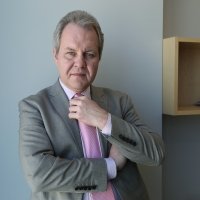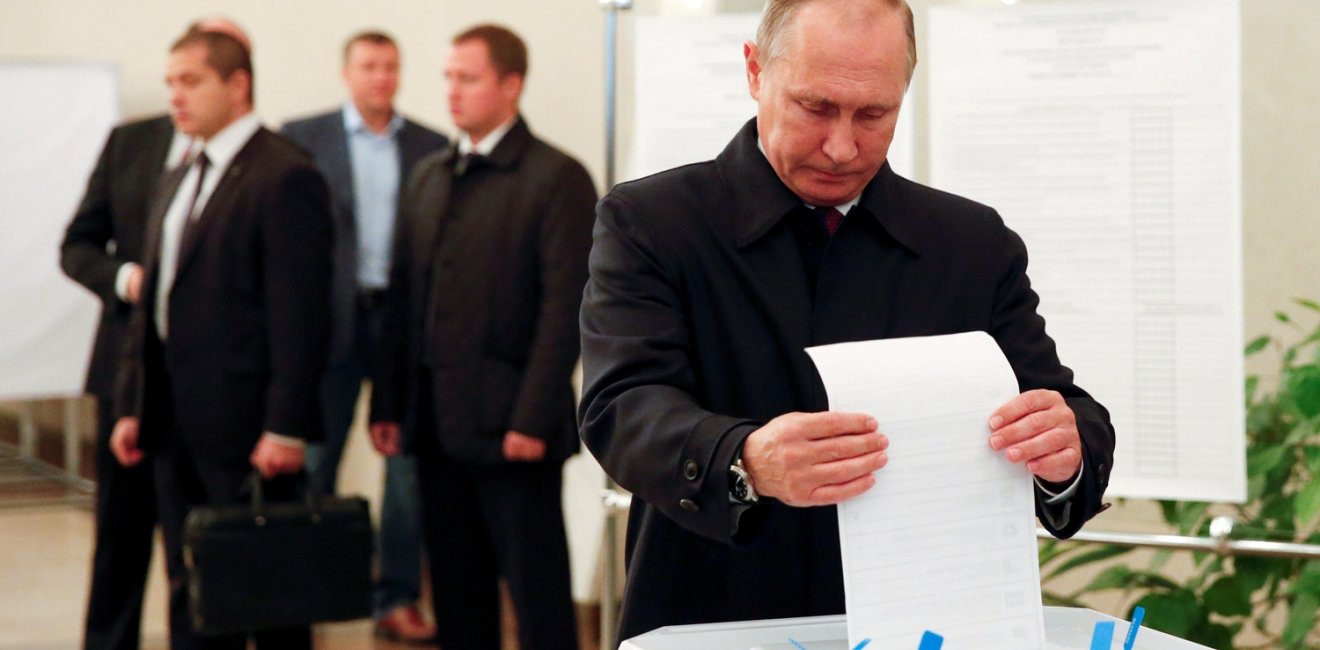
A blog of the Kennan Institute
A landslide United Russia victory and a remarkably poor showing of the opposition forces in Russia’s parliamentary elections earlier this week shouldn’t be attributed entirely to rigged electoral rules or fraud. There is another, different lesson to be drawn: the exhaustion of the opposition and its lack of ideas for garnering support.
Politics in Russia has been an extremely personalized business for decades, and it remains so today. What happened in the elections is that President Vladimir Putin’s approval rating of 87 percent was distributed among the parties that are more or less loyal to the Kremlin: the four parliamentary parties together received 87.1 percent of the popular vote last Sunday.
Russian liberals put at the head of two liberal tickets two men they believed had enough renown to at least dent Putin’s grip on the voting public, Mikhail Kasyanov, former prime minister, and Grigory Yavlinsky, founder of Yabloko, a left-leaning liberal party. But when it came to a personal showdown, those two stood no chance. No one in Russia stands a chance right now.
Putin’s name and persona serve as the political program for the parties that support him. Russian voters perceive in the president’s image a meaningful message. No other political figure in Russia is capable of projecting this power. This is why Russia’s opposition forces should change their tactics. They would do better if they built a new party based on a few fundamental ideas, not on personality. Such a party would be the sole ideological rather than personalized force in contemporary Russian politics. Putin might be defeated only when his charismatic leadership, severed from any plausible program for the country, is faced with an ideas-based movement that does not emphasize any particular leader. His famous “power vertical” might turn ineffective in a new type of struggle, just as a certain knight in armor suddenly was weakened when confronted by dozens of angry peasants wielding rakes. Such a tactic is the only option for an opposition that lacks a chevalier able to face the king in a one-on-one showdown.
So my first proposal is to take all bets off the table: forget about the current leaders and organize a party led by intellectuals or public figures who will nurture the new liberal movement but will not run for office and invite arguments even before the opposition comes into power.
The Russian opposition lacks the correct agenda, too. Very few Russians nowadays are moved by an agenda oriented toward greater democracy or a liberalized economy, nor are they particularly drawn to the anticorruption agenda. These themes sound too abstract and should be replaced by something that speaks more directly to larger parts of the population, though not necessarily to an overwhelming majority.
Such a tactic is the only option for an opposition that lacks a chevalier able to face the king in a one-on-one showdown.
Three points in particular have been notably absent from the opposition-led discourse in Russia.
First is a proposal to cut taxes and to make a number of sectors of the economy completely free of them. Agriculture is the first sector I have in mind: it accounts for only 0.8 percent of the taxes collected but employs 8 percent of the country’s workforce. Food processing is another suggested sector, and here I would include the smaller retail outfits, such as cafés and restaurants. Defending the interests of small- and medium-sized businesses may attract supporters to the liberal camp and at the same time break the official parties’ complete dominance of the rural vote.
A task for the future may be to turn Russia into the world’s largest offshore jurisdiction, similar to the Gulf states, where the amount of taxes collected does not exceed 4–6 percent of GDP, with the rest coming from oil and gas revenues.
Second, the opposition should challenge the most important asset of Putin’s Russia, its sovereignty, perhaps by advocating a pivot back to Europe and even some kind of submission to the EU along the lines of the Swiss and Norwegian model. If the UK exits the EU but still subjects itself to the acquis communautaire while paying the Europeans for access to the single market, that might become an ideal path for Russia to take as well, perhaps offering the EU 2–3 billion euros per year for access to its market, not to participate in decision making but respecting the acquis, the EU’s body of laws and regulations—and not asking for European aid. That may be the best way to exchange some of Russia’s excess national sovereignty for guarantees for investors and citizens and an acceleration of economic growth through deeper integration with the European states’ economies.
The Russian opposition should not forget that it was a choice for Europe, not corruption issues, that brought Ukrainians out into the streets. But no one in Russia has addressed the issue in a forceful way.
The public deserves a serious conversation about the kinds of issues people themselves consider important.
Third, the Russians have a long history of respecting culture and knowledge, while the current leadership nurtures primitivism and ignorance. Therefore another topic should be a strong anticlerical program, remaking Russia as a secular state and releasing the grip of Orthodox fundamentalism on public life. Declericizing Russian society and decreasing the role of formal religion may well become an agenda behind which up to a quarter of the electorate could unite, but it too was not touched on by anyone in the recent campaign.
The Russian public is still waiting for some new approaches from the opposition. It will not vote for people who were propelled to the highest administrative positions in the 1990s and early 2000s and then gave up their power to Putin and his loyalists without a fight. It’s time for them to go. The public deserves a serious conversation about the kinds of issues people themselves consider important. One should talk not just about democratic freedoms but also about how to fix the local utilities. Some good may come from this. And a lot of good would come if the liberal party leaders who have somehow managed to keep leading their parties for longer than President Putin has run the country were to move on and clear a space for younger politicians to step in.
There are more things to learn from the elections, but in fairness, one should also keep in mind that the current opposition is completely worn out. President Putin does not need friends when he has such exhausted opponents.
The opinions expressed here are solely those of the author.
Author


Kennan Institute
After more than 50 years as a vital part of the Wilson Center legacy, the Kennan Institute has become an independent think tank. You can find the current website for the Kennan Institute at kennaninstitute.org. Please look for future announcements about partnership activities between the Wilson Center and the Kennan Institute at Wilson Center Press Room. The Wilson Center is proud of its historic connection to the Kennan Institute and looks forward to supporting its activities as an independent center of knowledge. The Kennan Institute is committed to improving American understanding of Russia, Ukraine, Central Asia, the South Caucasus, and the surrounding region through research and exchange. Read more

Explore More in The Russia File
Browse The Russia File
Chechnya as a Model of Modern Russia

Russia’s Indigenous Communities and the War in Ukraine

Gas and Power in a Changing US–Russia Relationship

